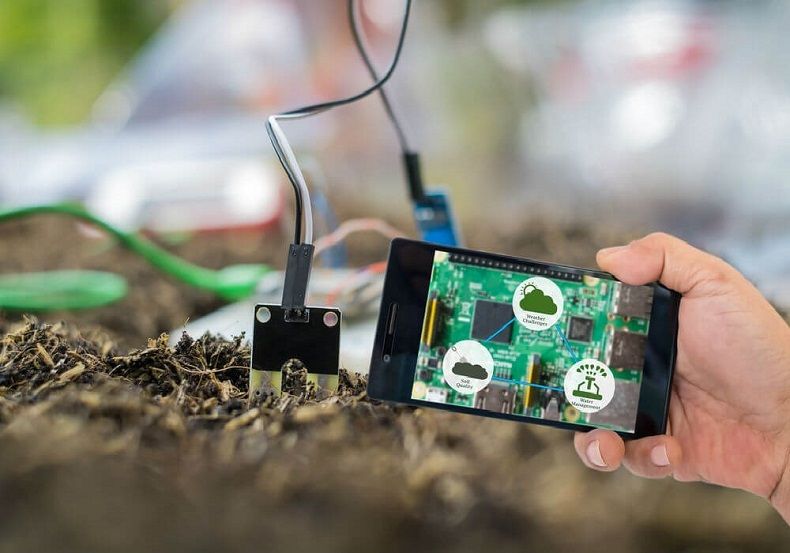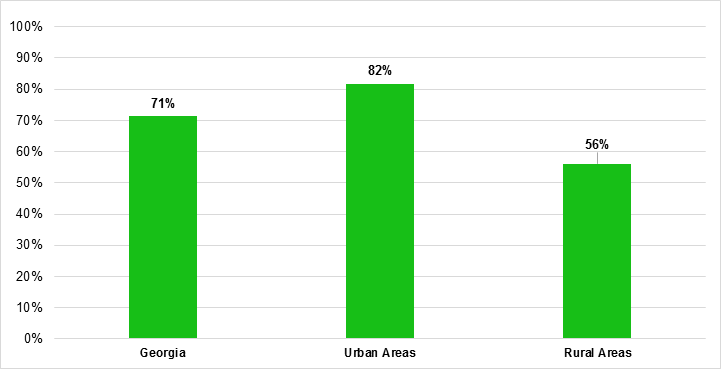Blockchain technology became a huge story last year due to the hype over cryptocurrencies such as Bitcoin and Etherium. Banks and other financial institutions are rushing to adopt blockchain technology. Nowadays, about 15% of financial institutions use blockchain technology to secure and validate transactions. IBM was the one of the first companies that saw the potential of blockchain use and encouraged startups related to the concept. While blockchain technology is mainly associated with the use of cryptocurrencies, the concept can be implemented in a wide variety of fields, including agriculture.
AN INVISIBLE, BUT EMERGING TECHNOLOGY
Essentially, blockchain is an emerging platform for executing transactional services across enterprises or between individuals that shares trusted information via a securely verified “chain of blocks.” It presents a shared version of a “hyper-ledger” of digitally signed and encrypted transactions that participants voluntarily agree to share through the chain. That ledger allows for peer-to-peer transactions of currency, commodities, and literally anything else that has value and takes place transparently. By running a coordination protocol called a consensus algorithm, “chains of blocks” are maintained in-sync across the peer network. Blockchain technology uses cryptographic security so that participants can only see information on the ledger that they are authorized to view and that cannot be changed or hacked. In other words, participants cannot change or deny the history of past transactions.
BEYOND BITCOIN TO AGRICULTURE: BENEFITS AND CHALLENGES
There have been discussions on blockchain applications within the agricultural sector, including sales and deliveries. A number of businesses are attempting to use blockchain technologies for international transactions with agricultural commodities. For instance, AgriDigital is piloting a study to create trusted and efficient agri-supply chains and integrate actors in the chain so all participants can operate with full confidence.
Arguments in favor of implementing blockchain technologies in agriculture are that it will empower smallholder farmers and they would have more control over their commodities. As argued by Liz Reitzig, the founder of Real Food Consumer Coalition (RFCC), which advocates and lobbies small farmers and the consumers who depend on them:
“Blockchain...offers means for farmers to contract with sellers to grow what is needed. Full or partial payment can go into escrow immediately...to guarantee payment to the farmer without breach of contract and coercion by marketers. Getting paid for labor is a big challenge in the farming world, and Blockchain can alleviate part of that.”
Some studies claim that blockchain might revolutionize agriculture and the food supply chain. Blockchain technology ensures the traceability and transparency of food transactions. As food transactions are often fraught with a number of information problems, blockchain implementation might contribute to food safety. The Italian Horsemeat Scandal is just one of plenty of examples of food safety standard violations; certification of food origin still remains a related problem. Beefledger presents one of the successful platforms, based in Australia, which integrates blockchain security and a payment platform for the beef supply chain. According to its director, Warwick Powell, Australian beef prices are so high in China that it creates an incentive to commit fraud. Accordingly, Beefledger aims to empower consumers to know exactly where their beef comes from and ensure that they are paying for exactly what they get. Another successful example includes an IBM and Walmart collaboration to bring transparency to the supply chain and remove actors who violate agreements.
Another problem that might be solved by blockchain adoption in the agricultural sector is logistics, as agricultural products usually have a very short shelf life and there are many uncertainties related to the supply chain. UPS has joined with Transport Alliance to create an opportunity to create the smart logistics network of the future based on the blockchain technology.
Blockchains enable the usage of smart contracts, which are software programs that enable automation of business processes in a secure and decentralized manner. Smart contracts are similar to regular contracts but are fulfilled automatically and ensure the process of exchange between different parties without the need for an authorized third party.
While there are many benefits associated with implementing blockchain technology in agriculture, there is also quite a lot of skepticism. According to Forbes, there are plenty of drawbacks that could stop blockchain adoption in its tracks. First, international food and beverage companies operate under different regulations and laws that might impede widespread implementation of blockchain technology. Second, poor network connectivity, outdated technology, and knowledge gaps regarding usage of technology are the main pitfalls in blockchain adaption in developing countries.
AND, GEORGIA’S PERSPECTIVE…
In 2017, Georgia has become one of the pioneering countries adopting blockchain technology to validate property-related government transactions. In collaboration with Bitfury Group, the National Agency of Public Registry of Georgia (NAPR) has successfully integrated blockchain technology to secure and validate official transactions related to real estate. After testing the software for land title registration, Bitfury Group and NAPR have signed a new memorandum on creating blockchain-based land registry services. This means that land-titling transactions such as purchases and sales, registration, demolition of property, mortgages and rentals, and notary services can be secured and validated by blockchain technology. For instance, such software is built in Sweden by the startup Chromaway, and in Honduras by Factom.
In order to facilitate opportunities for the further use of blockchain technologies in agricultural transactions, access to reliable internet connection is a “must.” Approximately 71% of Georgia’s overall households had access to the internet in 2017 (figure 1). In rural areas of Georgia, access stands at 56%.
Figure 1: Share of Households with Internet Access in 2017 (%)
According to Geostat, in 2017, only 1% of Georgia’s rural and urban population has not conducted internet-related activities such as social networking, using a search engine to find information, sending e-mails with attached files (documents, pictures, etc.), etc. Interestingly, 37% of the rural and 22% of the urban population have not carried out software-related activities in 2017 (Figure 2)1. The biggest share of population has conducted one or two software-related activities; the corresponding shares are 28% and 27% for the rural and urban population, respectively.
Figure 2: Distribution of Population Aged 15 and Older Who Have Carried out Software Related Activities (%)
While Georgia has already made the first steps toward implementing blockchain technology in agriculture, there are challenges that should be addressed to empower Georgian smallholder farmers. Infrastructure required for digital transactions should be developed, as access to network connectivity, as well as the appropriate technology, are the necessary preconditions for using blockchain technology. One of the biggest challenges for Georgian farmers might also be technical understanding of blockchain. Small farmers might be not equipped with appropriate skills and knowledge.
Nevertheless, blockchain technology has the potential to take Georgia’s agriculture forward and solve problems all along the supply chain: production, distribution, and sales. The successful experience of NARP regarding land-titling transactions might encourage further applications of blockchain technology to other areas of agriculture and propel the sector into the blockchain future.
1 According to Geostat, these activities include: copying or moving a file or folder; using copy and paste tools to duplicate or move information within a document (e.g. photo, text etc.); using basic arithmetic formulas in spreadsheet; connecting and installing new devices (e.g. a modem, web-camera, printer); finding, downloading, installing and configuring software; creating electronic presentations with presentation software; transferring files between a computer and other devices; writing a computer program using a specialized programming language.


















Comments
My sense is that most business transactions involving Georgian farmers are conducted in cash. Will blockchain be able to help move Georgian agricultural business into broad daylight, so to speak?
That is so true, Eric. Georgian farmers mainly conduct transactions in cash. In this regard, blockchains might contribute to record transactions and move them into daylight and record. Is the future of Georgian agriculture blockchain? This is a dubious question. In order to perform transactions farmers need to create/use cryptocurrency and link it to the actual products. Once smallholder farmers acquire proper understanding of blockchains, there might be a huge potential of its application in agriculture. Here is some good example: https://cointelegraph.com/news/blockchain-is-like-badass-tractor-how-russian-farmer-launched-ico
Salome, you should read this https://www.kp.ru/daily/26388/3266046/. I laughed and cried at the same time. This Shlyapnikov guy must be a real phenom. The English article you referenced is not nearly as brilliant - I thought it was an Aprils Fools day prank. :-))))
На чем-то Шляпникова надо было поймать. Поймали на очередной шутке - на якобы деньгах, «колионах» (от названия села Колионово), которые Шляпников выпустил, растоптав исключительное право Российской Федерации на эмиссию денег и подорвав навсегда экономическую безопасность великой страны.
Читаю исковое заявление егорьевского прокурора - и искренне жалею, что Салтыков-Щедрин умер так рано, не дожил, бедолага. Колионы - это «угроза единства платежной системы Российской Федерации, угроза для осуществления монополии РФ на эмиссию денег», они «наносят вред РФ и неопределенному кругу лиц». В иске прокурор просит суд запретить колионы. Но, как говорят местные, это пока. Дальше, когда суд запретит, появится «преступление» уже лично Шляпникова, а там и пресловутая «восьмерочка», которой шантажируют фермера недруги.